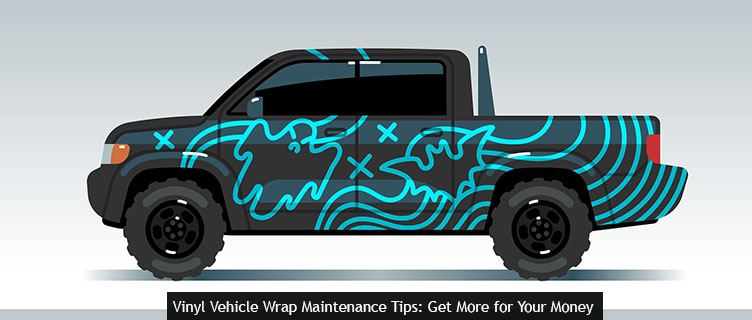Today’s post shares 3 simple tips for keeping your vinyl vehicle wrap looking as great as it did on day-one. Read on to learn how to get the most out of your custom vinyl vehicle wrap purchase, courtesy of the Signworld business alliance.
Wash your Wraps Regularly
Leaving your freshly wrapped vehicle outside overnight after the weatherman forecasts a rainstorm does not count. In fact, that’ll only make things worse. The air is full of pollen, pollutants, dust, smoke, and other harmful particles that get collected into raindrops as they fall from the clouds. When the rain hits your car wrap, these particles spatter all over the surface.
Hand-washing your vinyl vehicle wrap is really the only way to go. You can do this on your own, or call it a professional. Aim for weekly washings.
If you opt for a professional wash, be sure to inform the attendant that you have a vinyl wrap installed. Ask if the car wash process will damage the vinyl. Many automatic car washes are too abrasive, though this depends on the quality and type of wrap, as well as the specific process being used by the car wash. Similarly, pressure washing is not recommended. In some cases, high-pressure water can catch vinyl folds/slivers and open up holes in the face film. When in doubt, hand washes never fail, and they aren’t hard to find.
If you choose to hand-wash on your own, use the following process:
- Wet the vehicle before applying soapy water. This helps loosen up caked-on dirt and road-grime.
- Using a safe cleaning solution (described below) and microfiber sponge, start from the roof and work your way down gradually.
- Dry the vinyl manually with a microfiber cloth. You can dry it completely, or get the majority of water soaked up and let the sun finish the job. Whatever you decide, be sure to use care when drying the edges of the vinyl, as excess elbow grease can cause them to scratch, wrinkle, or lift.
Spot-test Cleaning Solutions before Application
When hand-washing your vinyl wrap, we recommend a mild detergent. Ideally, choose something biodegradable. These products are non-acidic, which means that they’re as gentle on your car as they are on the environment.
If you’re thinking about using a commercial car wash product, proceed with caution. We recommend spot-testing your cleaning solution on an inconspicuous area of the wrap before you fully lather up.
Some commercial car washing products contain harsh abrasive chemicals that can seriously damage face film, dampening its shine and luster. Others can destroy vinyl outright.
Weigh the Pros and Cons of Outdoor Storage
As mentioned previously, leaving your vinyl-wrapped vehicle outside overnight isn’t generally a good idea because of inclimate weather wear-and-tear. Rain and snow carries harmful particles onto the vinyl, while the sun’s UV rays can cause even the most striking of designs to fade away.
The easy solution to natural weathering is simply to store your vehicle indoors overnight–or, at the very least, under an overhang.
But while this keeps your vinyl looking great for longer, it also makes it much less visible to passersby. And isn’t the whole purpose of your vinyl wrap to catch eyes and advertise your business?
Ultimately, the owner has to weigh the pros and cons of outdoor storage and decides what’s best for them. Many find a happy medium by storing their vehicle outdoors during the day (and driving it around the city), then protecting it indoors at night when visibility is already low.
But if you’re in an area with excellent nighttime lighting and traffic at all hours, outdoor storage might be best. If so, committing to cleaning your vehicle on a weekly basis should be enough to fight off the majority of outdoor wear and tear.
Find more info about vinyl wrap maintenance and design at https://www.signworld.org




